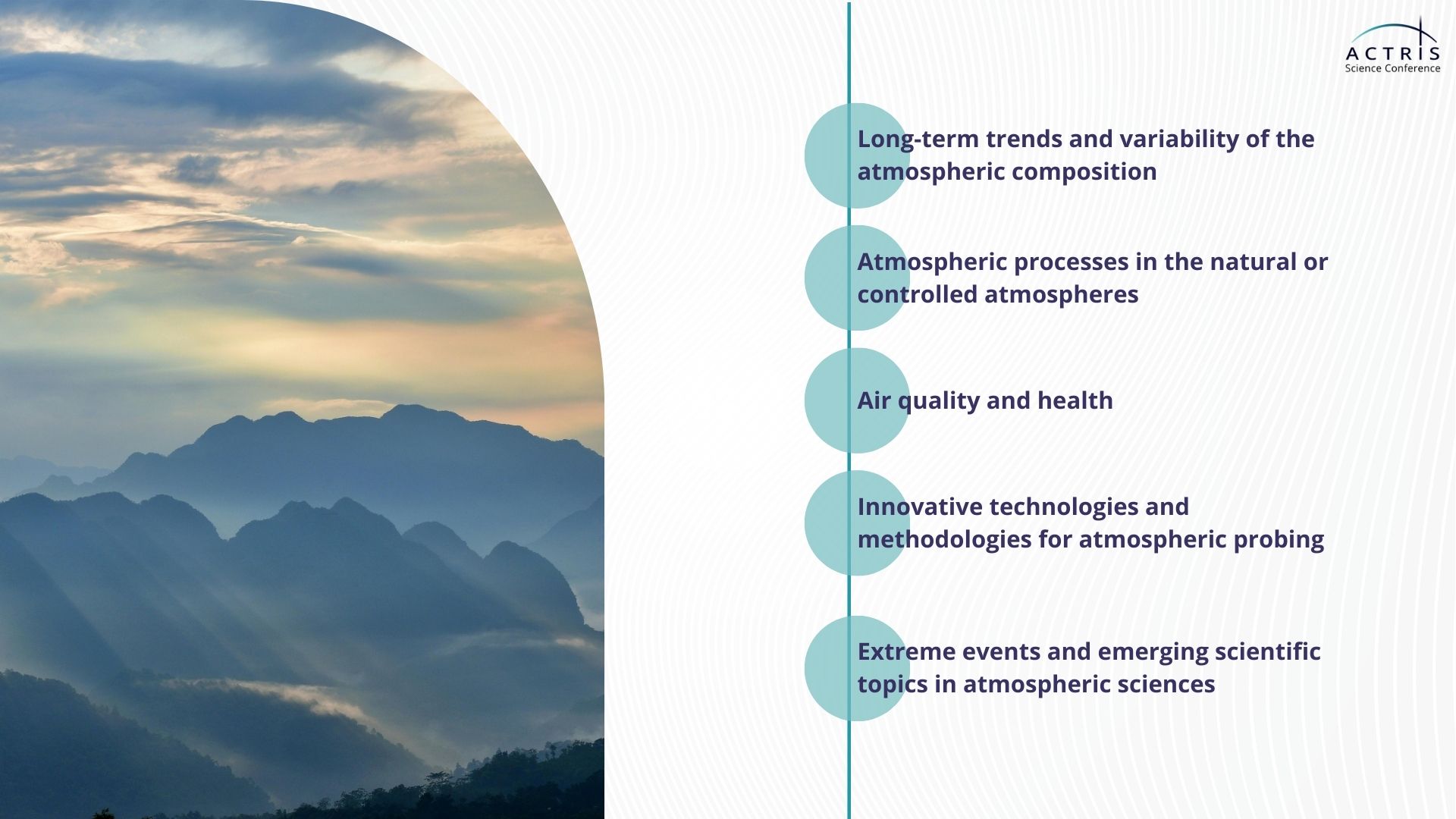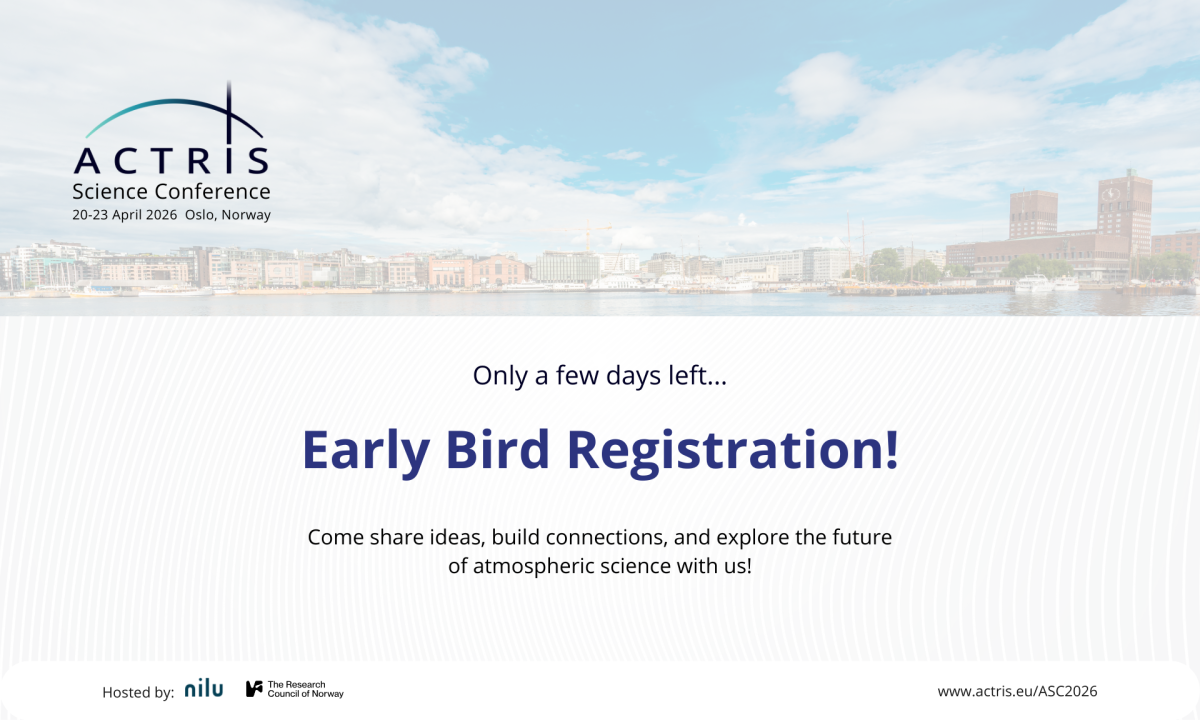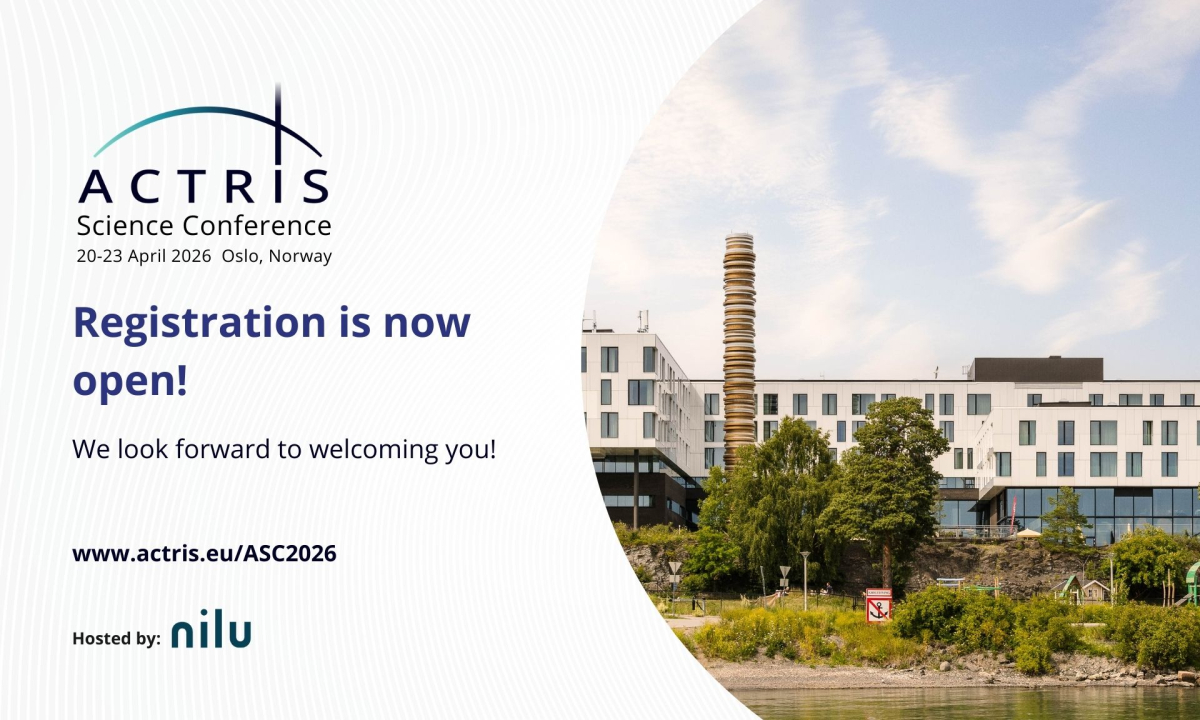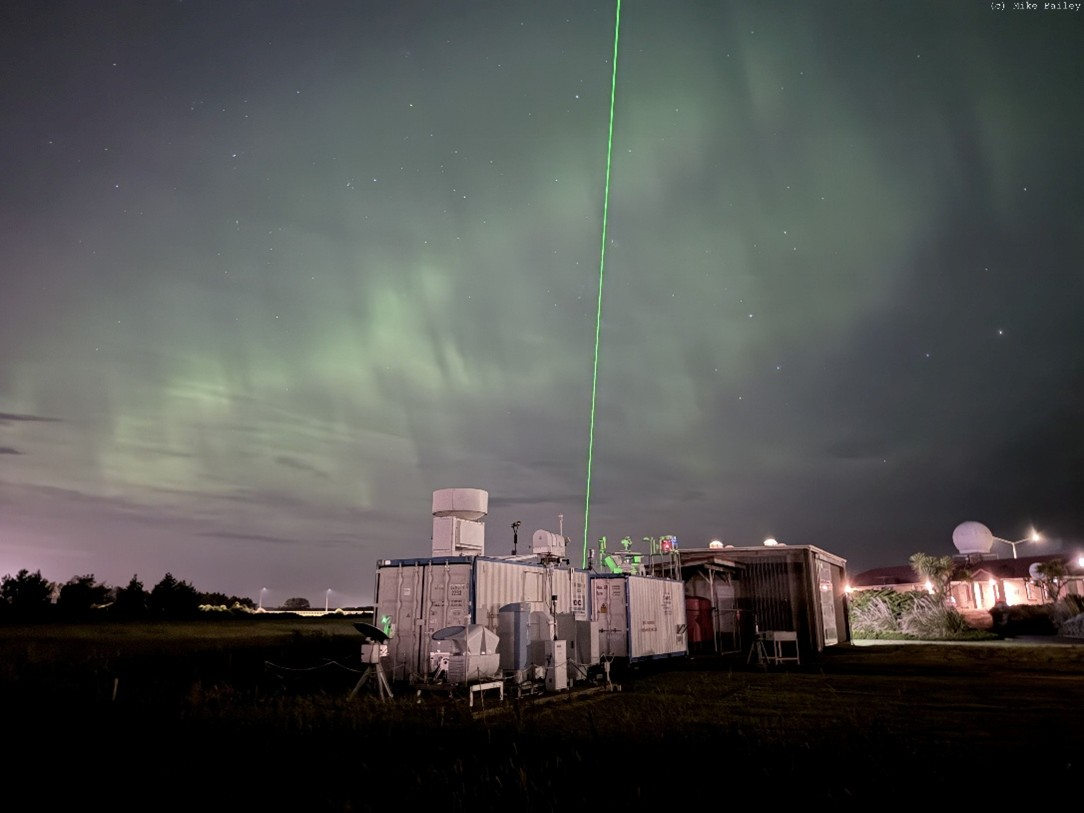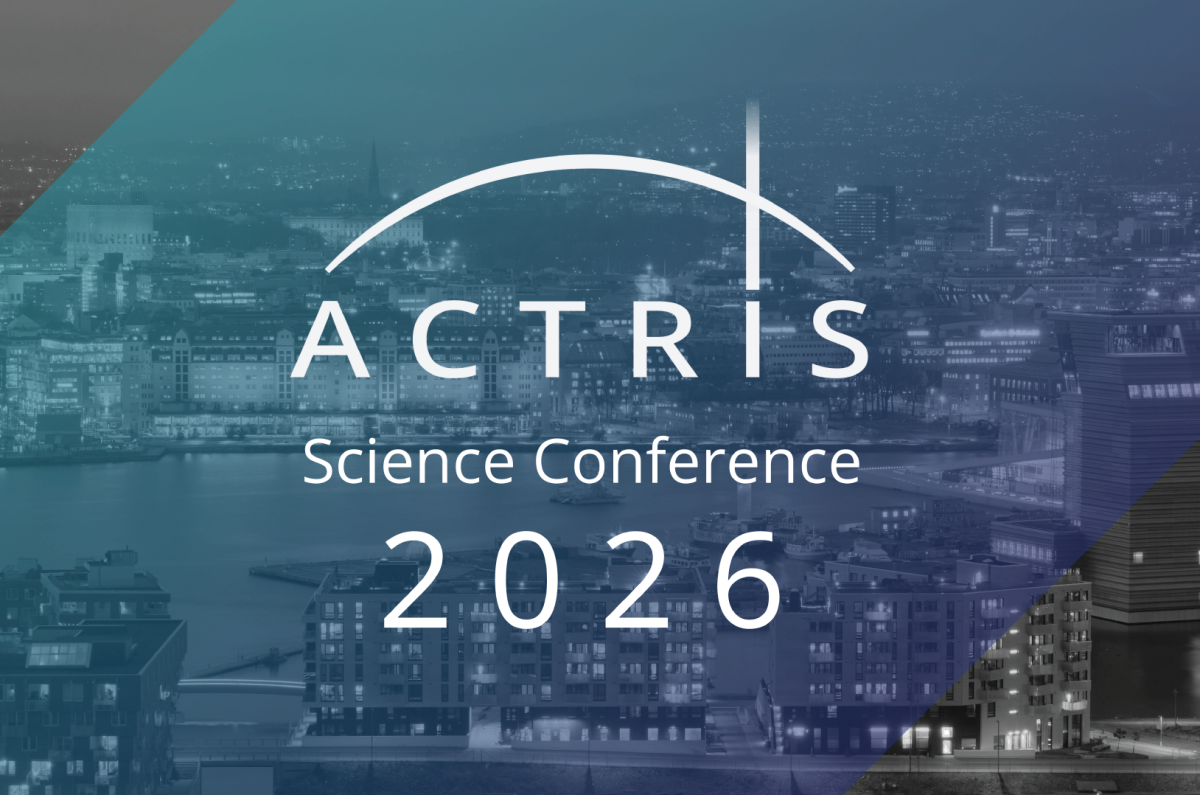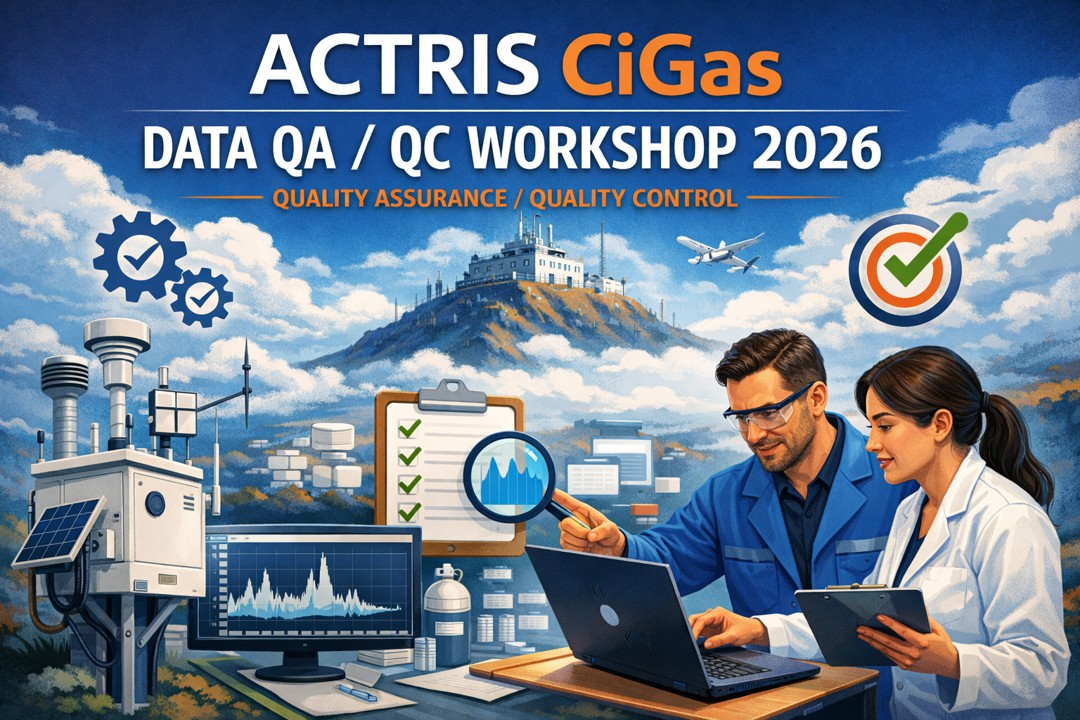Conference Dinner & Excursions
Theme 1 - Long-term trends and variability of the atmospheric composition (Cathrine Lund Myhre and Martine Collaud Coen)
The theme focuses on the variability and long-term trends of the atmospheric composition on decadal timescales. The theme is open for studies using all types of observations: ground based in-situ and remote observations, as well as earth observation from space. Presentations discussing the processes triggering this variability, and attribution of changes to specific drivers, as well as needs in terms of precision and accuracy, are very welcome.
Theme 2 - Atmospheric processes in the natural or controlled atmospheres, including aerosol-cloud-climate interactions (Carlos Toledano and John Wenger)
This theme focuses on studies investigating atmospheric processes such as gas phase degradation of primary emissions and the mechanisms of formation of ozone and secondary aerosol as well as aerosol-cloud-climate interactions, and ecosystem-atmosphere interactions. Results from both controlled environments such as simulation chambers or flow tubes as well as from field studies are welcome.
Theme 3 - Air quality and health (Gaelle Uzu and Xavier Querol)
New European air quality directive includes emerging pollutants, such as ultrafine particles and black carbon, and their oxidative potential. It also incorporates the concept of supersites in the air quality monitoring. This theme brings together observations from ACTRIS and air quality monitoring networks pertinent to air quality trends, insights and processes influencing the concentrations of air pollutants. Results from modeling and observations from Europe and beyond are welcome.
Theme 4 - Innovative technologies and methodologies for atmospheric probing, including calibration and validation of satellite atmospheric missions (Dimitris Balis and Jean Sciare)
This theme focuses on innovative technologies and methodologies for atmospheric probing, including calibration and validation of satellite atmospheric missions. This also includes innovative instrumentation, AI applications and methods, calibration/validation approaches and challenges, as well as collaborative international efforts towards innovation, including future directions and emerging technologies.
Theme 5 - Extreme events and emerging scientific topics in atmospheric sciences (Monica Passananti and Corinne Vigouroux)
This theme aims to explore emerging scientific topics, with a particular focus on extreme weather events such as heatwaves, droughts, and rainfalls, and their impact on society. Topics of interest include, but are not limited to, implications for human and ecosystem health, financial and insurance-related risks, and societal resilience. Invited contributions also include those addressing evolving environmental challenges, such as the presence and transport of microplastics, persistent organic pollutants (POPs), per- and polyfluoroalkyl substances (PFAS), and other contaminants in the atmosphere.

